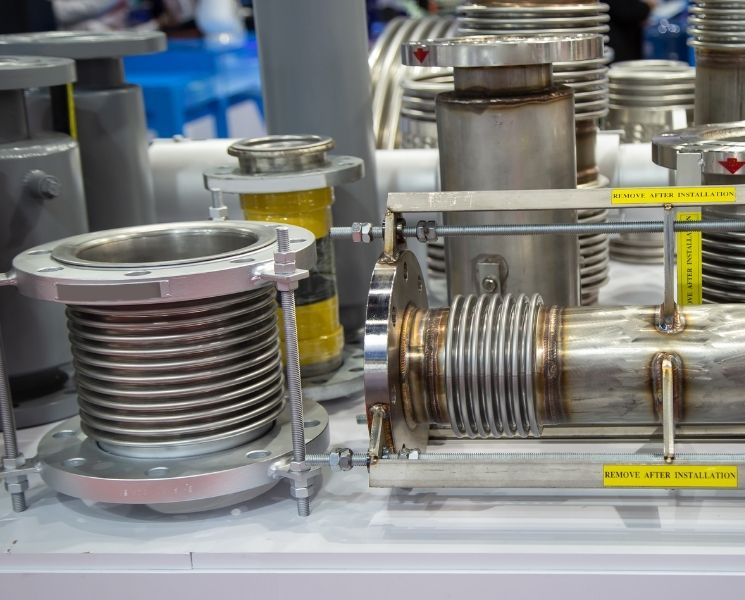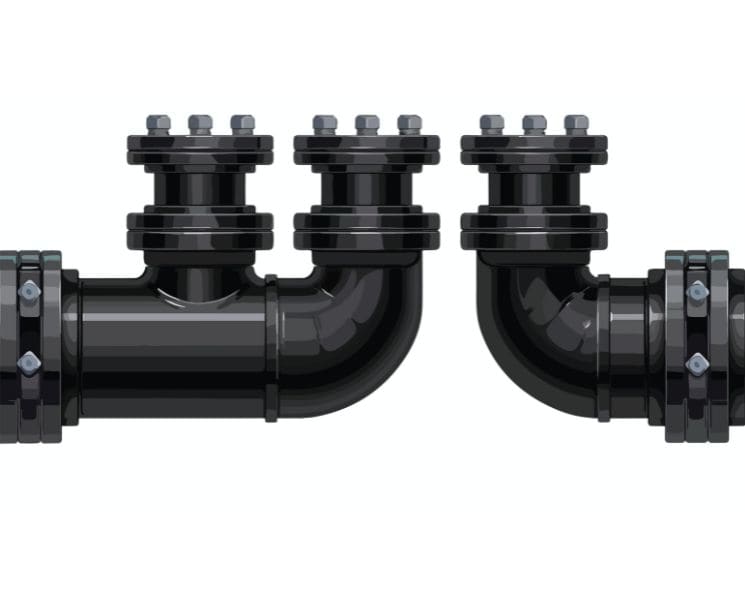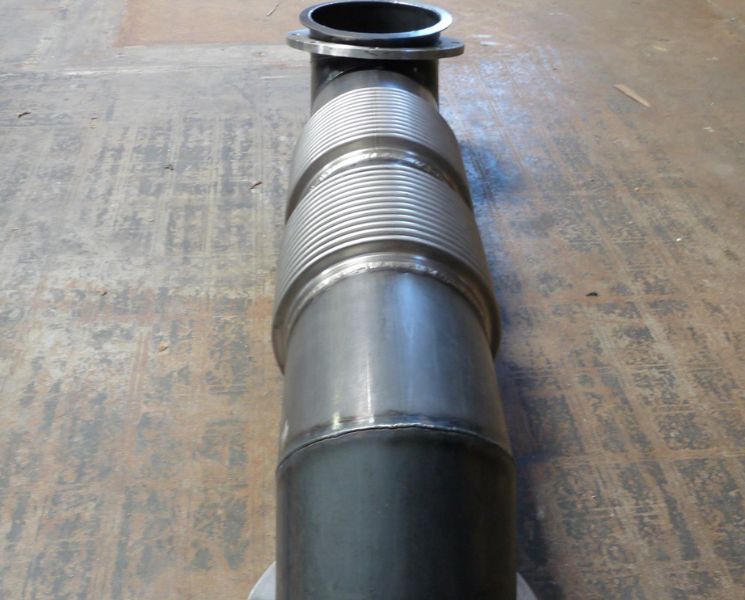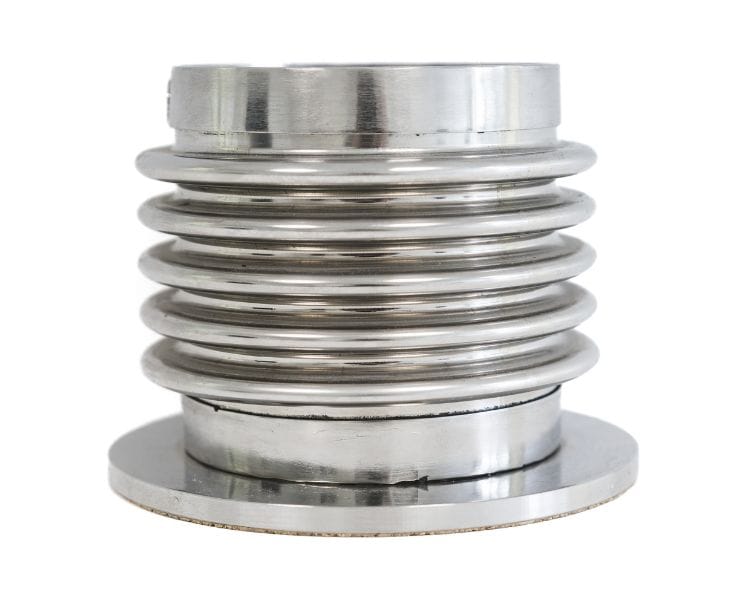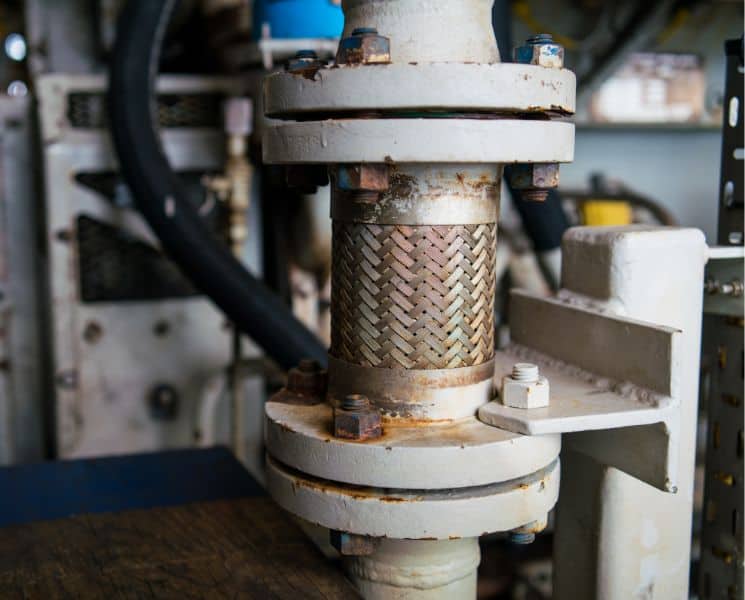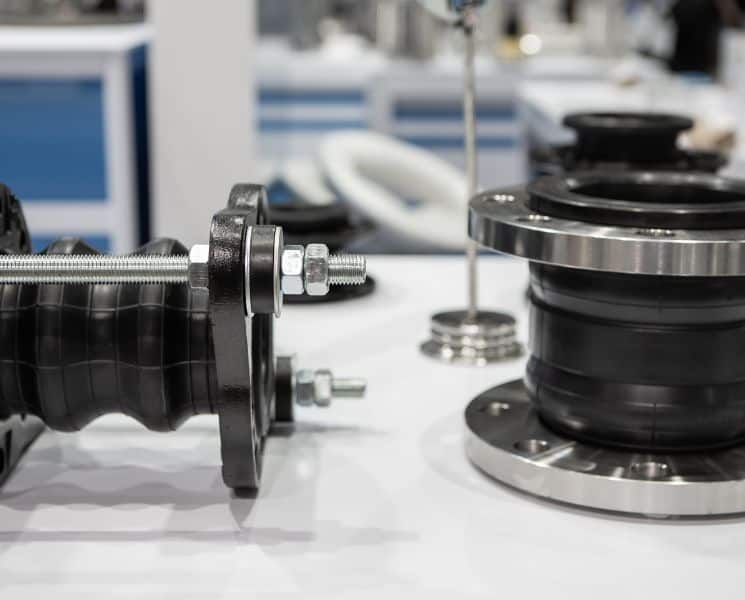Metal expansion joints play a crucial role in piping systems and ducts. These essential engineering components require careful storage to preserve their integrity and avoid damages affecting their functionality. Here are several dos and don’ts of storing your metal expansion joints to prevent unnecessary damage.
Do Store Expansion Joints Indoors
It’s best to always store metal expansion joints in a clean indoor area away from direct sunlight, preferably on chocks. However, if you keep them on the floor, the surface should be even, solid, and dry to avoid watermarks and rust on steel.
Expansion joints should lay flat to prevent damage and deformation, and they should be away from sharp objects. It’s also best to keep expansion components away from oil, grease, and chemicals, preferably in separate rooms.
Do Store Expansion Parts in Original Packaging
Storing expansion parts in their original packaging until installation preserves component integrity. The packaging also protects parts from foreign debris entering and lodging in internal flow sleeves and convolutions.
Don’t Use Abrasive Cleaning Agents
Many cleaning solutions and soaps contain harsh chemicals responsible for stress corrosion. When cleaning stored metal expansion joints, you should use only isopropyl alcohol and a soft cloth to wipe surfaces gently.
Avoid using abrasive cleaning tools like brushes and steel scrubbers when cleaning metal expansion components.
Don’t Hesitate To Stack Parts
It’s best to store metal expansion parts next to one another. However, there are extreme cases where you have limited space and no alternative. If you find yourself in such a situation, you can stack bellows on top of one another in a manner that preserves components and mitigates the risk of stacks falling over.
These are the dos and don’ts of storing your metal expansion joints. Remember to place them in a clean, dry area free of heavy traffic or damaging factors. Inspect parts for damage such as dents, broken components, and watermarks on storage cartons. When stored properly, expansion joints can last longer.
If you need further information on expansion joint maintenance, please get in touch with Triad Bellows. We’re happy to answer questions and concerns.

